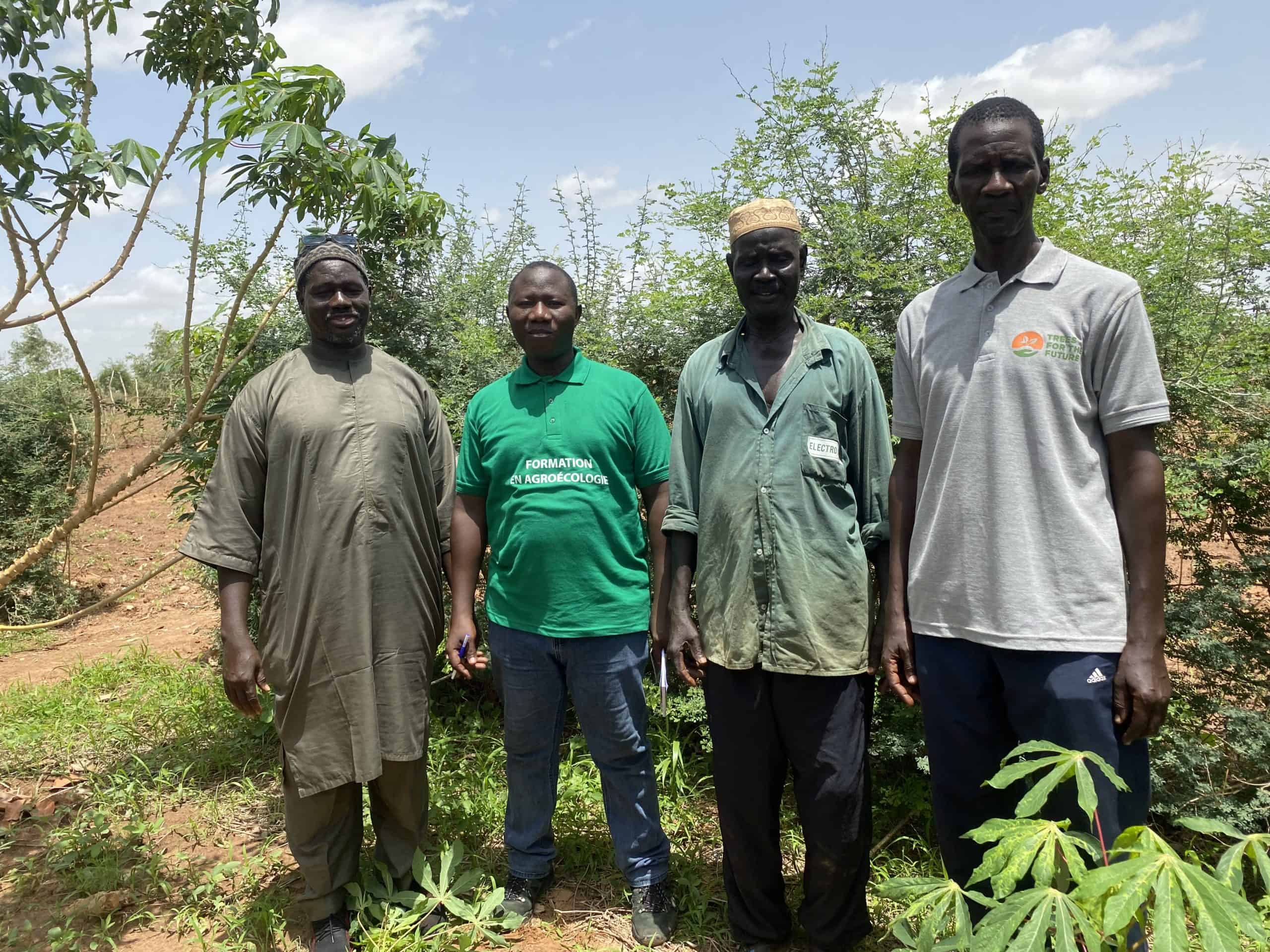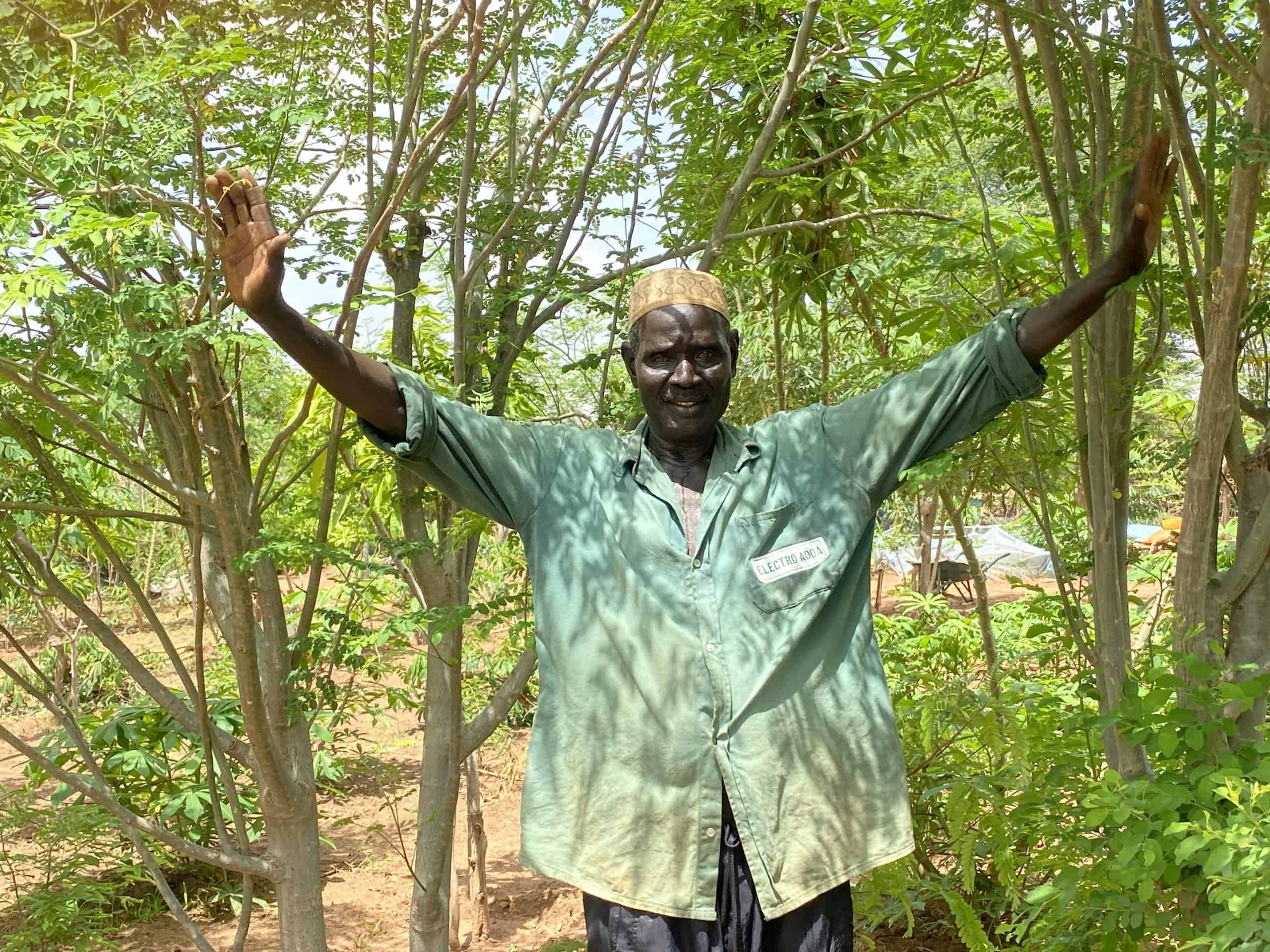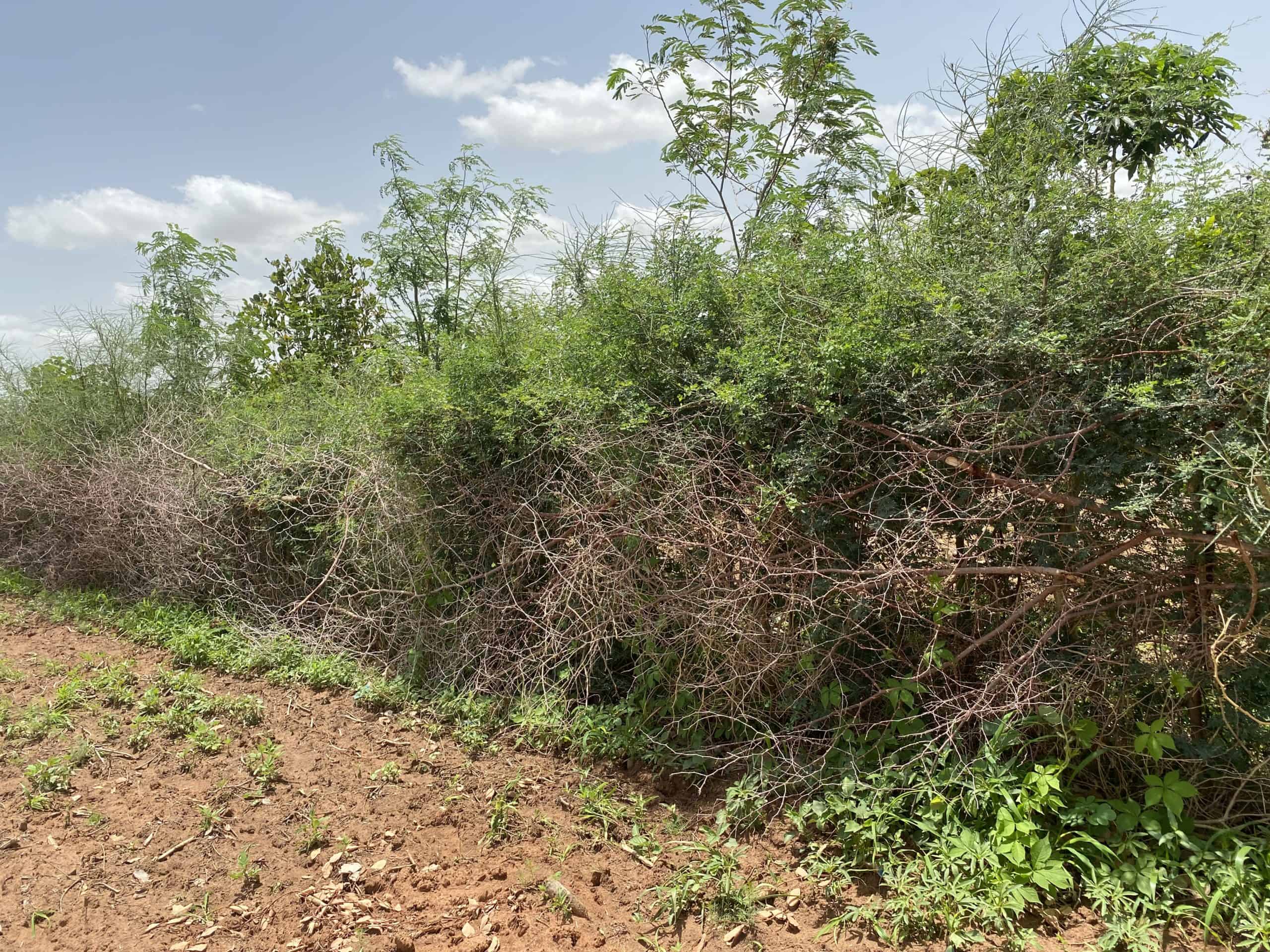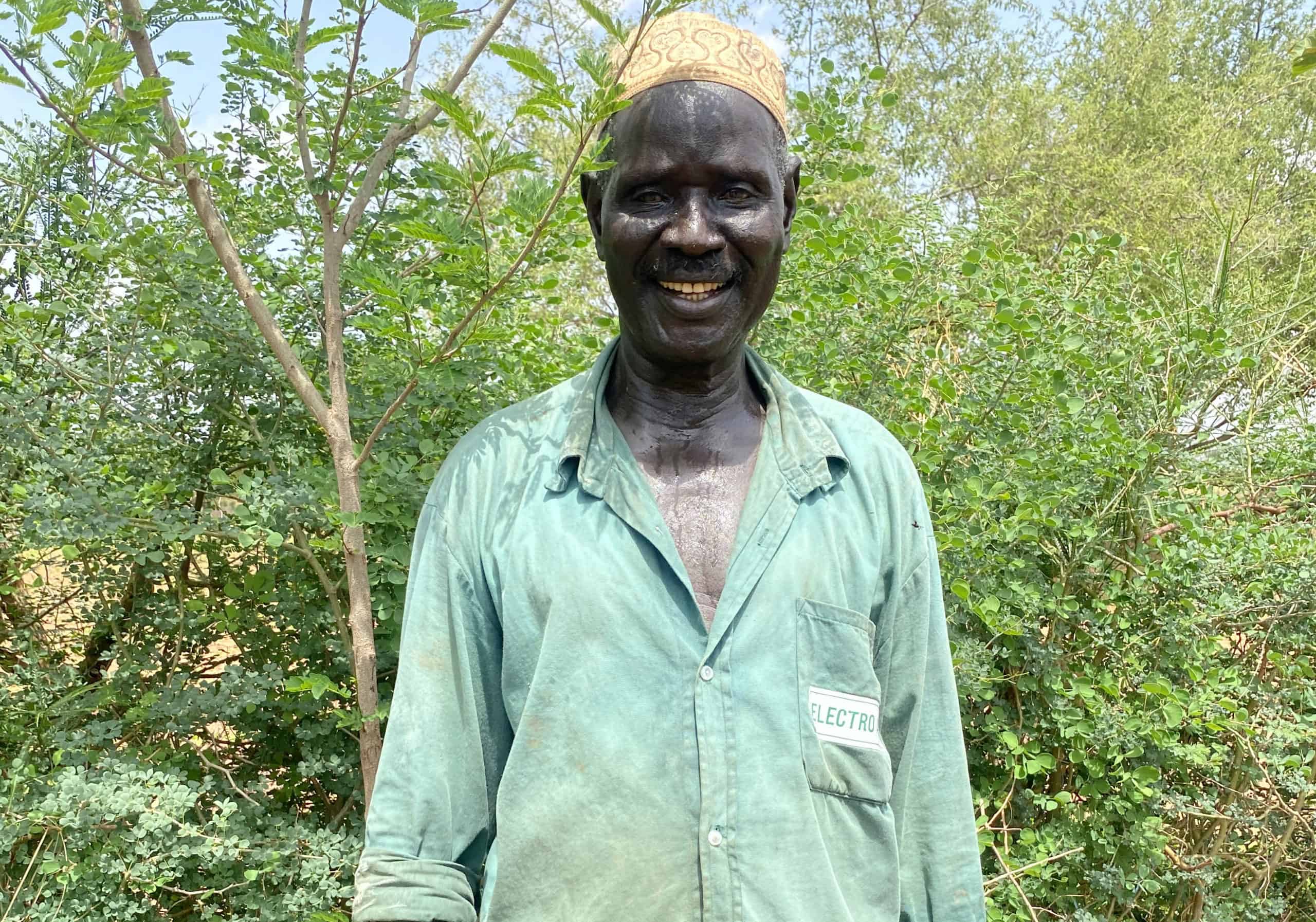“Trees for the Future has given meaning to my life.”
Since childhood, 75-year-old Babou Sao has lived with a hearing impairment.
“I could not study because of my handicap and so in the age of adulthood to have something to eat I became a tire extension worker,” he says.
Despite his best efforts, Babou says he was often unable to make ends meet.
“I was sometimes discouraged by my condition and slept on an empty belly at my age!” he recalls.
But that all changed when Babou joined an agroforestry training program with Trees for the Future (TREES) alongside 147 neighboring farmers in 2019. Local TREES staff have spent the past three years training Babou and his group members in the Forest Garden Approach, teaching them to restore their degraded farmland and improve their nutrition and income.

Babou Sao (second from the right) joined TREES’ training program in 2019.
Forest Gardens are surrounded by a living fence made up of thousands of agroforestry trees working to restore and protect the soil while providing for the farmer. Inside the living fence, farmers diversify their crops so that they have more to eat and sell. In addition to fruits, vegetables, grains, and staple crops, they are also growing a variety of fruit and nut trees in their Forest Gardens.
“I have 60 lemon trees, 60 papaya trees, 16 mango trees, five orange trees, five pomegranate trees, 200 cassava trees, 14 cashew trees, one sapodilla tree, 10 pigeon peas trees, and 10 tamarind trees,” Babou Sao counts happily.

Thanks to his Forest Garden, Babou has now become one of the main suppliers of the weekly market in his area.
“With each harvest, I have a profit of 200,000 fcfa ($311 USD)! Thanks to the money from my harvests, I was able to buy livestock and finish the construction of my room.”

Babou’s living fence surrounds his Forest Garden, protecting the soil and providing a variety of resources.
Beyond his successes as a farmer, Babou says the program has enabled him to better connect with his neighbors.
“Since Babou integrated the project, he has flourished, and we are able to understand him better,” says lead farmer Omar Sall. “Working with him has helped us to better understand his difficulties.”
